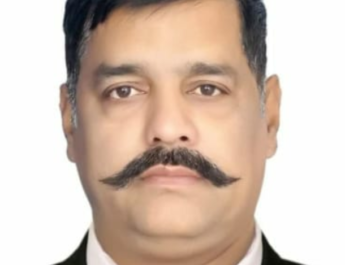From Our Bureau
NEW DELHI: The Supreme Court on Wednesday directed the government to revise every five years and pay the pensions to ex-servicemen due from July 1, 2019 within three months, upholding the 2015 policy of “one rank, one pension” to the personnel of the Armed Florces.
A bench comprising JusticeS D.Y. Chandrachud andSurya Kant in ITS judgment pronounced on Wednesday ordered that in terms of November 7, 2015 communication that mandates refixation of pension every five years and the same is due since July 1, 2019, the Centre will undertake the exercise and pay the arrears to all eligible pensioners of the Armed Forces within three months.
On the contention by the petitioner ex-servicemen on the automatic revision of their pensions on any future enhancement in the
rates of pension, Justice Chandrachud, speaking for the bench said, “When read together contextually, it signifies that the rates of
pension would be passed on to past pensioners without any administrative impediments. The expression ‘automatically passed on’
cannot be construed as a commitment with reference to any period of time for the computation of benefits.”
Elaborating it further, Justice Chandrachud said that the “manner in which and the period over which revisions should take place of
pensions, salaries and other financial benefits is a pure question of policy” and the decision of the central government to revise the
pension every five years “cannot be held to violate the precepts underlying Article 14.”
Holding that all pensioners who hold the same rank may not for all purposes form a homogenous class, and may draw different pension in :terms of money, the court said “It is not a legal mandate that pensioners who held the same rank must be given the same amount of
pension. The varying benefits that may be applicable to certain personnel which would also impact the pension payable need not be
equalised with the rest of the personnel.”
Noting that salaries and pensions account for 63% of the defence budget estimates for 2020-2021, the court said that in making policy
choices, the central government is entitled to take into account “priorities towards modernization of the armed forces and to modulate
the grant of financial benefits so as to sub-serve and balance distinct priorities.”
The top court judgment came on a 2016 petition by Indian Ex Servicemen Movement and others challenging the November 7, 2015 OROP policy contending that it was at variance with the Koshyari Committee Report, the minutes of the meeting chaired by the defence minister on 26 February 26, 2014 and the communication dated February 26, 2014 to CGDA.
Referring to the contention of the petitioners, the court in its judgment said that all this clearly suggestive of the “evolving decision” which was taking place within the government on the formulation of “precise modalities” of OROP which were to be adopted and finally crystalised in a decision communicated on November 7, 2015.





